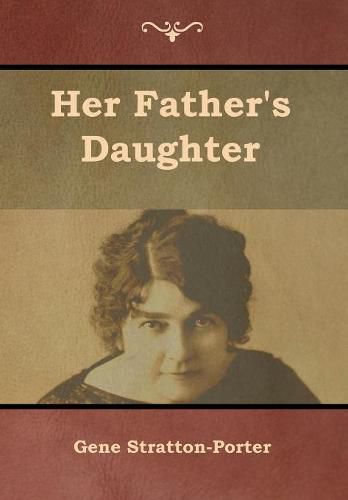Readings Newsletter
Become a Readings Member to make your shopping experience even easier.
Sign in or sign up for free!
You’re not far away from qualifying for FREE standard shipping within Australia
You’ve qualified for FREE standard shipping within Australia
The cart is loading…






This title is printed to order. This book may have been self-published. If so, we cannot guarantee the quality of the content. In the main most books will have gone through the editing process however some may not. We therefore suggest that you be aware of this before ordering this book. If in doubt check either the author or publisher’s details as we are unable to accept any returns unless they are faulty. Please contact us if you have any questions.
Her Father’s Daughter (1921), one of Stratton-Porter’s last novels, was set in southern California, outside Los Angeles, where she had moved around 1920. The novel is especially biased against immigrants of Asian descent. Judith Reick Long, one of Stratton-Porter’s biographers, stated that World War I-era racial prejudice and nativism were prevalent in the United States and it was not unusual to be anti-Asian in southern California at that time. Barbara Olenyik Morrow, another of her biographers, explained that the book was intentionally playing to the era’s ethnic prejudices. The Literary Review, ignoring its anti-Asian content, noted its wholesome charm.
$9.00 standard shipping within Australia
FREE standard shipping within Australia for orders over $100.00
Express & International shipping calculated at checkout
This title is printed to order. This book may have been self-published. If so, we cannot guarantee the quality of the content. In the main most books will have gone through the editing process however some may not. We therefore suggest that you be aware of this before ordering this book. If in doubt check either the author or publisher’s details as we are unable to accept any returns unless they are faulty. Please contact us if you have any questions.
Her Father’s Daughter (1921), one of Stratton-Porter’s last novels, was set in southern California, outside Los Angeles, where she had moved around 1920. The novel is especially biased against immigrants of Asian descent. Judith Reick Long, one of Stratton-Porter’s biographers, stated that World War I-era racial prejudice and nativism were prevalent in the United States and it was not unusual to be anti-Asian in southern California at that time. Barbara Olenyik Morrow, another of her biographers, explained that the book was intentionally playing to the era’s ethnic prejudices. The Literary Review, ignoring its anti-Asian content, noted its wholesome charm.